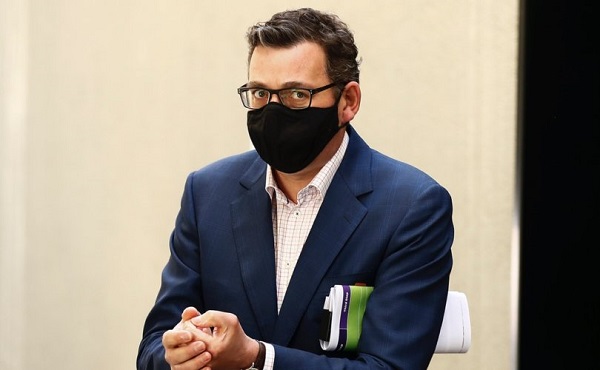Alberta
Danielle Smith vows Alberta won’t be ‘transitioning away’ from oil, natural gas
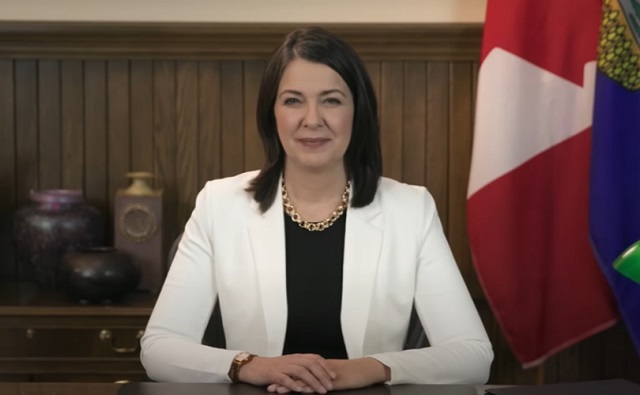
From LifeSiteNews
‘Energy security and affordability are comparable with sustainability. Alberta is actively reducing emissions through technology, not taxes’
Alberta is refusing to phase out oil and gas, despite the regulations proposed by Prime Minster Justin Trudeau’s government.
On November 20, Alberta Premier Danielle Smith announced on X, formerly known as Twitter, that the province will focus on reducing emissions but will not eliminate the gas and oil sector, as effectively demanded by the Trudeau government.
Energy security and affordability are comparable with sustainability. Alberta is actively reducing emissions through technology, not taxes.
But, we will not be transitioning away from oil and natural gas. pic.twitter.com/H6k9czBOjN
— Danielle Smith (@ABDanielleSmith) November 20, 2023
“Energy security and affordability are comparable with sustainability. Alberta is actively reducing emissions through technology, not taxes,” she wrote.
“But, we will not be transitioning away from oil and natural gas,” Smith declared.
Also on November 20, Smith blasted Alberta’s leader of the provincial opposition, the New Democratic Party’s Rachel Notley, for pushing for energy regulations and the carbon tax on Albertans.
“I think Albertans wish the member of the opposite would stand up for Albertans for a change rather than take marching orders from the federal NDP leader,” she said, referring to NDP leader Jagmeet Singh who has sided with the Liberal government in favor of the carbon tax and energy regulations.
“If they had just agreed to eliminate the carbon tax, it would reduce inflation 16%, which means we wouldn’t have to see an increase in interest rates, which means people could afford to buy a house as well,” she continued, referring to information from the Bank of Canada.
“Maybe she should stand up for Albertans for a change,” Smith declared.
WATCH: Danielle Smith destroys Jagmeet Singh, Rachel Notley, and rips apart the evil deal the two have, that is stabbing Albertans in the back. W Danielle.pic.twitter.com/xHTFm81O5M
— Keean Bexte (@TheRealKeean) November 21, 2023
Smith’s statements come in response to Trudeau attempting to force a net zero emissions goal on provinces across Canada, regardless of the negative effects it will have on Canadians’ lives.
Trudeau has also refused to extend the carbon tax exemption to all forms of home heating, instead only exempting the forms of heating used in the Liberal-held Atlantic provinces.
Smith has repeatedly refused to submit to the Liberal government’s demands, warning that Canadians could freeze in the winter if the new “clean emissions” regulations are enforced.
Smith’s warnings are not unfounded. Alberta’s electric grid operator, Alberta Electric System Operator (AESO), warned that Trudeau’s 2035 net-zero power grid goal will mean instability for the western province and are “not feasible.”
In September, Smith announced that she is preparing to use her province’s Sovereignty Act to fight the energy regulations.
The draft version of the federal government’s Clean Electricity Regulations (CER) states that there will be billions of higher costs associated with a so-called “green” power transition, especially in the resource-rich provinces of Alberta, Saskatchewan, New Brunswick, and Nova Scotia, which use natural gas and coal to fuel power plants.
In May, Minister of Environment Steven Guilbeault declared that violating environmental regulations banning the use of coal and gas-fired power after 2035 may even result in criminal sanctions, a statement that only increased the tension between the federal government and the provinces opposed to the proposed policies.
The Trudeau government also recently threatened to withhold billions of taxpayer money to provinces that will continue to use resources such as natural gas, oil and coal to generate electricity beyond 2035.
In addition to Smith, Saskatchewan Premier Scott Moe has likewise promised to fight back against the new regulations, saying recently that “Trudeau’s net-zero electricity regulations are unaffordable, unrealistic and unconstitutional.”
“They will drive electricity rates through the roof and leave Saskatchewan with an unreliable power supply. Our government will not let the federal government do that to the Saskatchewan people,” he charged.
The Trudeau government’s current environmental goals – in lockstep with the United Nations’ “2030 Agenda for Sustainable Development” – include phasing out coal-fired power plants, reducing fertilizer usage, and curbing natural gas use over the coming decades.
The reduction and eventual elimination of the use of so-called “fossil fuels” and a transition to unreliable “green” energy has also been pushed by the World Economic Forum (WEF) – the globalist group behind the socialist “Great Reset” agenda – an organization with which Trudeau and some of his cabinet are involved.
Alberta
Alberta’s move to ‘activity-based funding’ will improve health care despite naysayer claims

From the Fraser Institute
After the Smith government recently announced its shift to a new approach for funding hospitals, known as “activity-based funding” (ABF), defenders of the status quo in Alberta were quick to argue ABF will not improve health care in the province. Their claims are simply incorrect. In reality, based on the experiences of other better-performing universal health-care systems, ABF will help reduce wait times for Alberta patients and provide better value-for-money for taxpayers.
First, it’s important to understand Alberta is not breaking new ground with this approach. Other developed countries shifted to the ABF model starting in the early 1990s.
Indeed, after years of paying their hospitals a lump-sum annual budget for surgical care (like Alberta currently), other countries with universal health care recognized this form of payment encouraged hospitals to deliver fewer services by turning each patient into a cost to be minimized. The shift to ABF, which compensates hospitals for the actual services they provide, flips the script—hospitals in these countries now see patients as a source of revenue.
In fact, in many universal health-care countries, these reforms began so long ago that some are now on their second or even third generation of ABF, incorporating further innovations to encourage an even greater focus on quality.
For example, in Sweden in the early 1990s, counties that embraced ABF enjoyed a potential cost savings of 13 per cent over non-reforming counties that stuck with budgets. In Stockholm, one study measured an 11 per cent increase in hospital activity overall alongside a 1 per cent decrease in costs following the introduction of ABF. Moreover, according to the study, ABF did not reduce access for older patients or patients with more complex conditions. In England, the shift to ABF in the early to mid-2000s helped increase hospital activity and reduce the cost of care per patient, also without negatively affecting quality of care.
Multi-national studies on the shift to ABF have repeatedly shown increases in the volume of care provided, reduced costs per admission, and (perhaps most importantly for Albertans) shorter wait times. Studies have also shown ABF may lead to improved quality and access to advanced medical technology for patients.
Clearly, the naysayers who claim that ABF is some sort of new or untested reform, or that Albertans are heading down an unknown path with unmanageable and unexpected risks, are at the very least uninformed.
And what of those theoretical drawbacks?
Some critics claim that ABF may encourage faster discharges of patients to reduce costs. But they fail to note this theoretical drawback also exists under the current system where discharging higher-cost patients earlier can reduce the drain on hospital budgets. And crucially, other countries have implemented policies to prevent these types of theoretical drawbacks under ABF, which can inform Alberta’s approach from the start.
Critics also argue that competition between private clinics, or even between clinics and hospitals, is somehow a bad thing. But all of the developed world’s top performing universal health-care systems, with the best outcomes and shortest wait times, include a blend of both public and private care. No one has done it with the naysayers’ fixation on government provision.
And finally, some critics claim that, under ABF, private clinics will simply focus on less-complex procedures for less-complex patients to achieve greater profit, leaving public hospitals to perform more complex and thus costly surgeries. But in fact, private clinics alleviate pressure on the public system, allowing hospitals to dedicate their sophisticated resources to complex cases. To be sure, the government must ensure that complex procedures—no matter where they are performed—must always receive appropriate levels of funding and similarly that less-complex procedures are also appropriately funded. But again, the vast and lengthy experience with ABF in other universal health-care countries can help inform Alberta’s approach, which could then serve as an example for other provinces.
Alberta’s health-care system simply does not deliver for patients, with its painfully long wait times and poor access to physicians and services—despite its massive price tag. With its planned shift to activity-based funding, the province has embarked on a path to better health care, despite any false claims from the naysayers. Now it’s crucial for the Smith government to learn from the experiences of others and get this critical reform right.
2025 Federal Election
Group that added dozens of names to ballot in Poilievre’s riding plans to do it again

From LifeSiteNews
The ‘Longest Ballot Committee’ is looking to run hundreds of protest candidates against Conservative leader Pierre Poilievre in an upcoming by-election in the Alberta.
A group called the “Longest Ballot Committee” is looking to run hundreds of protest candidates against Conservative Party leader Pierre Poilievre in an upcoming by-election in the Alberta Battle River–Crowfoot riding, just like they did in his former Ottawa-area Carelton riding in last week’s election.
The Longest Ballot Committee is a grassroots group that packs ridings with protest candidates and is looking to place 200 names in the Battle River–Crowfoot riding. The riding was won by Conservative-elect MP Damien Kurek who garnered over 80 percent of the vote, but has since said he is going to vacate his seat to allow Poilievre to run a by-election and reclaim his seat in Parliament in a Conservative-safe area.
In an email to its followers, the committee said “dozens and dozens” of volunteers are ready to sign up as candidates for the yet-to-be-called by-election. The initiative follows after the group did the same thing in Poilievre’s former Carelton riding which he lost last Monday, and which saw voters being given an extremely long ballot with 90 candidates.
The group asked people who want to run to send them their legal name and information by May 12, adding that if about 200 people sign up they will “make a long ballot happen.”
-

 Business2 days ago
Business2 days agoCarney pivots from anti American campaign, embracing US and hailing Trump as “transformational president”
-
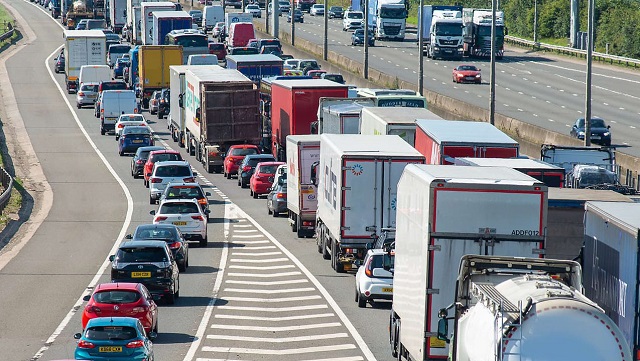
 Daily Caller2 days ago
Daily Caller2 days agoMisguided Climate Policies Create ‘Real Energy Emergency’ And Permit China To Dominate US
-
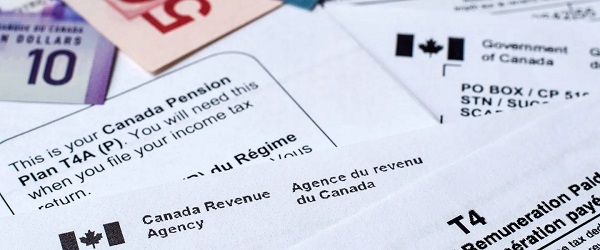
 Business2 days ago
Business2 days agoReality check—Canadians are not getting an income tax cut
-

 International1 day ago
International1 day agoIce Surprises – Arctic and Antarctic Ice Sheets Are Stabilizing and Growing
-
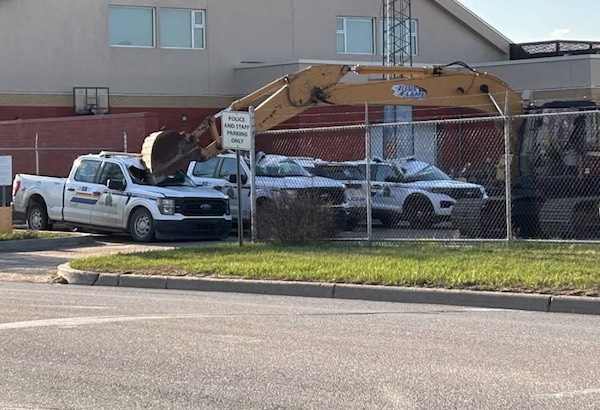
 Alberta2 days ago
Alberta2 days agoBonnyville RCMP targeted by suspect driving a trackhoe – Update
-
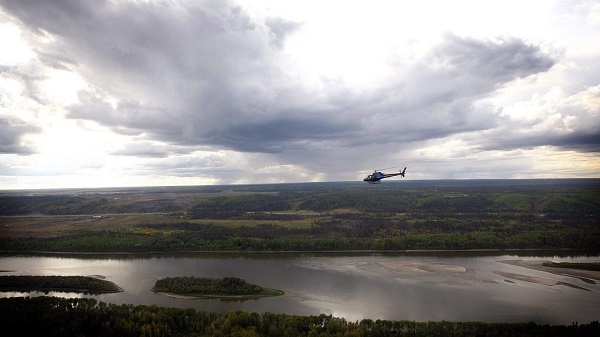
 Alberta2 days ago
Alberta2 days agoEnergy projects occupy less than three per cent of Alberta’s oil sands region, report says
-

 Energy2 days ago
Energy2 days agoCarney’s energy superpower rhetoric falls flat without policy certainty
-

 Energy1 day ago
Energy1 day agoOil tankers in Vancouver are loading plenty, but they can load even more




